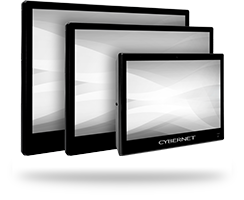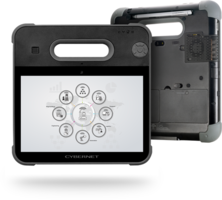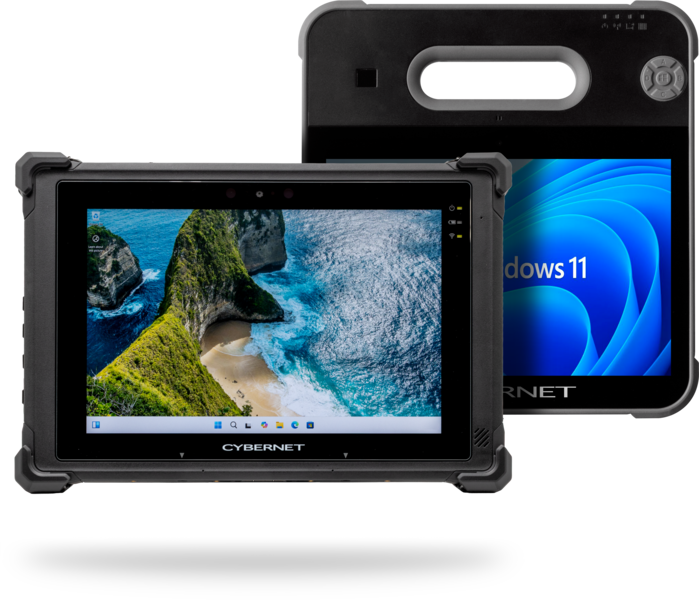The Internet of Things (IoT) is one of the most critical aspects of “Industry 4.0,” the most recent wave of innovations in the world of manufacturing. Industrial IoT (IIoT) can deliver better safety for employees, greater efficiency for manufacturers, and deeper insight into work processes.
However, implementing IIoT effectively requires powerful, reliable, and proven computer hardware and software. That’s why we’ve partnered with Stratodesk, a leading developer of operating systems for high-stakes medical and industrial applications to offer combined solutions that deliver on both fronts. Both halves of this equation are necessary if you want to take advantage of the gains that IIoT offers.
Hardware Requirements for Industrial IoT
For industrial operators, the highest priorities for their computer hardware are that they work where they need to, when they need to, with a minimal amount of support and maintenance required.
Rugged Design Features
The most critical question for manufacturers when considering a new industrial computer is “will it work where I need it to?” Industrial roles often involve harsh vibrations, sudden shocks as machines start and stop, extreme temperatures, high amounts of particulates in the air, and more.
Therefore, industrial-grade computers must be designed and manufactured to not only endure these conditions, but thrive in them. This includes features like IP65 ratings to block out dust and water from entering the PC’s case, IEC 60068 testing for parameters like shock and vibration, and fanless designs that reduce the number of moving parts and improve overall reliability.
Customization and Flexible Deployment Options
Every business or manufacturer will have different priorities and needs regarding performance, peripheral devices, and other features. An industrial panel PC managing multiple machines in a harsh light environment will need greater processing power and an anti-glare filter when compared to the base model, for instance.
For this reason, many businesses partner with OEMs who can customize industrial PCs to their exact specifications. OEMs that can provide multiple types of computers, such as panel PCs, mini box PCs, Power-Over-Ethernet models, and tablets are ideal, as they offer a wide range of products for an equally wide range of situations.
Lastly, the Internet of Things cannot exist without consistent and reliable Internet access. Industrial computers should have both wired and wireless connection options to better ensure the constant flow of information between devices and servers. Strong wireless connectivity is vital for industrial tablets, as they are frequently used on the go and don’t have the luxury of a wired Ethernet connection.
Legacy Compatibility
Due to the high upfront cost of industrial machinery, businesses will try to use their equipment for as long as possible. Unfortunately, this can result in machinery that is incompatible with the newest computers needed to implement IIoT.
This is why industrial computers must implement legacy compatibility features, such as serial ports that allow them to interface with older machines. This gives industrial businesses the best of both worlds: They can continue using their legacy equipment while enjoying the convenience and flexibility of modern computers.
Software Requirements for Industrial IoT
Software is the second half of the equation for achieving effective IIoT. If an industrial computer’s hardware provides the bones and muscles, then software is the brains and nerves that process information and present it to the user. Stratodesk’s NoTouch OS is an excellent example of software specifically optimized for IIoT, providing the security, flexibility, and ease of use that an industrial OS requires.
Cybersecurity
One of the highest priorities for IoT software, especially in industrial applications, is protecting devices from cyberattacks and outside intrusion. Given that the average data breach costs a company over $4.8 million in damages and lost efficiency, most companies literally cannot afford to ignore this weakness.
Software cybersecurity can take many forms, such as read-only file systems, which prevent cybercriminals from tampering with a computer’s files, or disk encryption, which blocks unauthorized access even if the computer is physically stolen.
Hardware Agnostic
Given the wide range of platforms and systems that IIoT uses, such as the aforementioned panel PCs, mini PCs, and tablets, industrial software must be able to function across all of them as well.
Implementing the same software across multiple systems benefits both end-users and IT professionals. For end-users, having the same operating system on their PCs and tablets while on the go reduces training time and the need to juggle multiple tools.
Reducing the number of programs and systems IT teams monitor simplifies troubleshooting and helps them identify what went wrong when something breaks. Once they identify the issue, they can update all of a company’s devices to prevent the same error from occurring again.
Flexibility and Customization
Like computer hardware, IIoT software needs to be customized to fit the requirements of its role. It also needs to be tailored to match the needs of its end-users. Customizing the computer’s operating system is particularly important, as it is the primary interface by which an employee interacts with the greater IoT system.
Stratodesk’s NoTouch OS gives companies control over critical aspects such as access control and the tools available to employees, as well as minor elements like where the taskbar is located on the screen or how large desktop icons are. These features might sound frivolous, but they can make a massive difference in user experience depending on their working conditions and environment.
Ease of Deployment and Updates
When a business purchases new equipment, whether hardware or software, it wants to use it immediately, not spend hours, days, or even weeks fiddling with settings and installation. Ideally, software should be ready for work right out of the box, with a minimum of setup and deployment time.
Once in use, software should be consistently updated to patch up security weaknesses, optimize performance, or address user feedback. These updates should be issued by the software developer rather than the end-user, and rolled out in such a way that they don’t disrupt the user’s workflow.
Embrace Industrial IoT with Cybernet and Stratodesk
While industrial IoT can offer numerous benefits, it needs the proper technology to support it. Industrial-grade computer hardware and software are necessary for providing the security, processing power, and reliability it requires.
By partnering with software developers like Stratodesk, Cybernet’s industrial-grade computers and tablets deliver the performance you need, backed by rugged designs that keep your IoT networks connected and maintenance costs low. Contact Cybernet Manufacturing today to learn more about our products and how we support modern industrial software programs.


